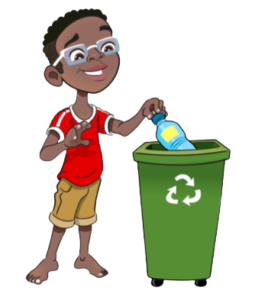Restorative Approach
Positive Behaviour for Learning
At New Windsor, we have a PB4L approach (Positive Behaviour for Learning).
We look at the behaviour and learning from a whole school as well as an individual child perspective. The framework is based on international evidence.
It helps New Zealand schools build a culture where positive behaviour and learning is a way of life and is about supporting our students to make positive choices. We use “The New Windsor Way” to guide our students to make positive choices.
Restorative Practice
One way we support our students to make positive choices is through a restorative practice approach.
Restorative Practice is a relational approach to school life grounded in beliefs about equality, dignity, mana and the potential of all people. The Positive Behaviour for Learning (PB4L) Restorative Practice model focuses on building and maintaining positive, respectful relationships across the school community and offers school staff best-practice tools and techniques to restore relationships when things go wrong. By building and maintaining positive, respectful relationships within a school, staff to staff, staff to student and student to student, issues are more easily managed.
Positive working relationships at all levels are integral to the success of the social and learning environments of the school. Restorative practice enhances a school wide cultural of mutual respect, care and support even in the face of wrong doing and relational conflict.
This relationship centred approach allows for the community of people involved to come together to explore the harm and restore healthy connections. Those affected have a more active involvement in the reparative process and those responsible are more accountable to the people they harmed, thus restoring emotional as well as material losses of those affected.
Restorative Conversations
We are guided by four questions which focus on accountability, healing and needs:
What happened?
Who has been affected? How?
What needs to happen to put things right?
What do we need to do to move forward?
Restorative conversations are regarded as the foundational restorative practice and are part of everyday school dialogue. Teachers are encouraged to engage in restorative conversations both as prevention and as an early intervention for relatively low-level classroom disruption. This approach models respectful dialogue and includes the language of restorative inquiry at the time of disruption.
Removal from class to calm down and reflect
As a measure in response to a disruptive student when their behaviour is affecting others and their learning opportunities, removal to another environment may be required.
Prior to this
Staff will use a range of low level deescalating approaches to prompt students to self-monitor and self-correct so that removal may not be necessary. Further disruption beyond this point results in the student being removed to an alternative space where they work with available staff to problem solve the issues that caused them to be sent out.
Staff use questions to prompt the student to understand the event from a wider perspective. Students tell their version of the event and are supported to explore the harm and impact on others. They are encouraged to identify and prioritise their goals. This enables the student to find another way that will work for themselves and others in the classroom, and prepares them for classroom re-entry.
The student and staff member engage in respectful restorative dialogue to establish re-entry back into class and clear ways forward with the teacher.
Mini Conferences
Harmful events involving students and/or a teacher can be resolved relatively quickly using this approach and does require some preparation. Mini conferences can be used when the incident is serious enough to inform parents/caregivers but not necessarily to involve them in the process itself.
A neutral facilitator leads the conference where those involved and affected have an opportunity to discuss the issues together in a safe and controlled process and the agreement reached is formalised and followed up on.

Class Conferences

This approach may be applied where a whole class is being affected by disruption or conflict causing learning to be impeded and relationships to be damaged. A neutral facilitator, teachers, support personnel and the students meet as a whole group and discuss the issues, explore the harm and come up with solutions together to ensure the best learning environments are re-established.
Formal Restorative Conferences
This is also known as a community conference because it involves the whole community of people affected by an incident of serious harm. These conferences involve parents and or family members of those affected or harmed by an incident and those who have caused this harm. They require careful preparation of participants by a neutral facilitator and commonly involve substantial follow up and follow on to ensure obligations and undertakings are completed and lived up to and accountability ensured. Agreements are recorded and kept as part of the school’s tracking system.
Restorative Conferences in the event of Stand-down
The New Windsor School Board will expect that students who stood down from school will be part of a Restorative Conference with the aggrieved parties to repair the harm they have caused and establish core expectations and obligations before being reintegrated back into school.
This will be coordinated to take place as close to the end of the stand-down as possible, and attendance is important if a student is to remain at New Windsor School.

